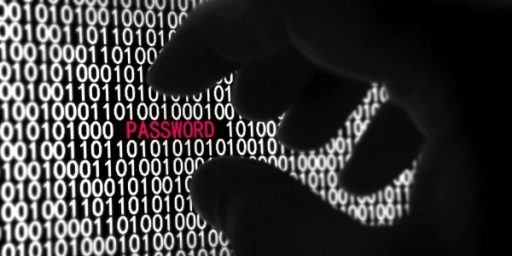Hot Tech Concepts for 2007
Alex Hutchinson highlights “10 Tech Concepts You Need to Know for 2007” for Popular Mechanics. Some that struck me as particularly interesting:
PRAM (Phase-Change Random Access Memory): Flash memory, with no moving parts to break or wear down, is the data storage technology of choice for devices such as iPods and digital cameras. But phase-change RAM is set to overtake flash entirely—it uses a chemical found in rewritable discs, which is alternately heated and cooled to store data. The result is memory that’s 30 times faster than flash, with more than 10 times the life span.
Vehicle Infrastructure Integration: Your car may have GPS navigation and radar blind-spot monitoring, but it still doesn’t stand a chance against traffic. The Department of Transportation’s Vehicle Infrastructure Integration program, which faces its final testing in 2007, might even the odds. The program involves installing a 5.9-GHz short-range wireless link in your car that can talk with other cars, as well as with control units at intersections and along the side of the road. Pool all the information being beamed from cars—speed, location, whether the wipers are on—and you have a map of traffic and weather conditions, so that drivers can be directed away from trouble spots.
Body Area Network Picture this: The cellphone in your pocket sends a tiny electrical current—a fraction of an amp—along your skin, so your car door springs open at your touch and your PC logs in when you grab the mouse. That’s what German startup ImCoSys says its new smartphone will be capable of, thanks to body area network (BAN) technology. Of course, proving those claims would require partner companies to build BAN-compatible devices, and no such deals have been announced since the phone was released last summer.
Data Cloud Ferrying data from one hard drive to another via e-mail, flash memory thumb drives or rewritable discs is no way to live. What if every one of your files, from skimpy documents to gigabyte-hogging music collections, were accessible from any Internet connection, forming a vast data cloud that follows you wherever you go? A host of products and services let you create a data cloud right now, from Maxtor’s networked hard drives to Google’s rumored Gdrive, with “unlimited” storage on the search giant’s servers. Add a synchronization service such as Microsoft’s FolderShare, which applies a change you’ve made on your PDA to that same file on your laptop and PC, and you’re one step closer to retiring the original data storage device—the one in your head.
The speed at which information technology is advancing continues to amaze me. On the other hand, the flying cars we’ve been promised for decades have yet to emerge.
 One area where advancement has seemingly lagged behind my lay understanding of our technological capabilities, though, is the development of prosthetic limbs. The cover story in the current Esquire is a profile of Bryan Anderson, a triple amputee owing to injuries suffered as a soldier in Iraq. While his artificial limbs are impressive, indeed, by WWII standards, they are still incredibly cumbersome compared to what they seemingly could be given our advances in robotics and microchips. Perhaps I expect too much having grown up watching “The Six Million Dollar Man.” Then again, that show debuted in 1973 and many of the technologies that were in the realm of science fiction then are laughably dated now.
One area where advancement has seemingly lagged behind my lay understanding of our technological capabilities, though, is the development of prosthetic limbs. The cover story in the current Esquire is a profile of Bryan Anderson, a triple amputee owing to injuries suffered as a soldier in Iraq. While his artificial limbs are impressive, indeed, by WWII standards, they are still incredibly cumbersome compared to what they seemingly could be given our advances in robotics and microchips. Perhaps I expect too much having grown up watching “The Six Million Dollar Man.” Then again, that show debuted in 1973 and many of the technologies that were in the realm of science fiction then are laughably dated now.






So many punchlines.
It won’t be too much longer before the mechanical harddrive goes the way of typewriter. And consider what that will mean for laptop size/weight/heat/battery life.